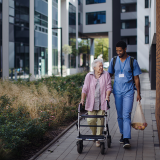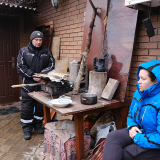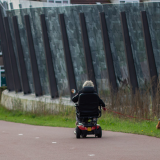
Levensomstandigheden en kwaliteit van het bestaan
Levensomstandigheden en de kwaliteit van het bestaan zijn een van de zes hoofdactiviteiten van het werkprogramma van Eurofound voor de periode 2021-2024. Eurofound zal de belangrijkste aspecten van de verbetering van de levensomstandigheden van de mensen in Europa in kaart blijven brengen en analyseren, met inbegrip van informatie over hun perceptie van de samenleving en de kwaliteit van het bestaan. Aangezien de COVID-19 -pandemie en de daaruit voortvloeiende economische crisis grote gevolgen hebben (gehad) voor ieders leven, zal Eurofound de gevolgen van deze crisis voor EU-burgers in verschillende levensfasen nader onderzoeken.
In de periode 2021-2024 zal het onderzoek van Eurofound een belangrijk inzicht verschaffen in de uitdagingen en vooruitzichten op het gebied van levensomstandigheden en de kwaliteit van het bestaan in de EU en de rol van diverse initiatieven om de sociale problemen van verschillende groepen burgers te verlichten. Van bijzonder belang zijn de gevolgen voor ouderen en zorgbehoeften, jongeren en hun sociale inclusie en sociale mobiliteit, en de – niet parallel lopende – gevolgen van de crisis voor mannen en vrouwen .
Openbare diensten in de hele EU spelen een belangrijke rol bij de aanpak van de COVID-19-crisis waarbij zij met grote uitdagingen worden geconfronteerd, en zij zullen uitvoeriger worden beoordeeld met bijzondere aandacht voor kwesties als kwaliteit, toegang en betaalbaarheid. Zoals uit eerdere bevindingen is gebleken, heeft de crisis onevenredige gevolgen (gehad) voor bepaalde groepen al naargelang leeftijd, zorgtaken en evenwicht tussen werk en privéleven , wat door Eurofound nader zal worden geanalyseerd.
In samenwerking met het Europees Instituut voor gendergelijkheid (EIGE) is Eurofound voornemens de multidimensionale genderkloof onder de loep te nemen door onderzoek te doen naar de gevolgen van de COVID-19-crisis voor mannen en vrouwen op het gebied van arbeidsparticipatie, materiële levensomstandigheden en welzijn – om de verschillen in kaart te brengen en het effect van die crisis op de verschillende vormen van de genderkloof te beoordelen.






























